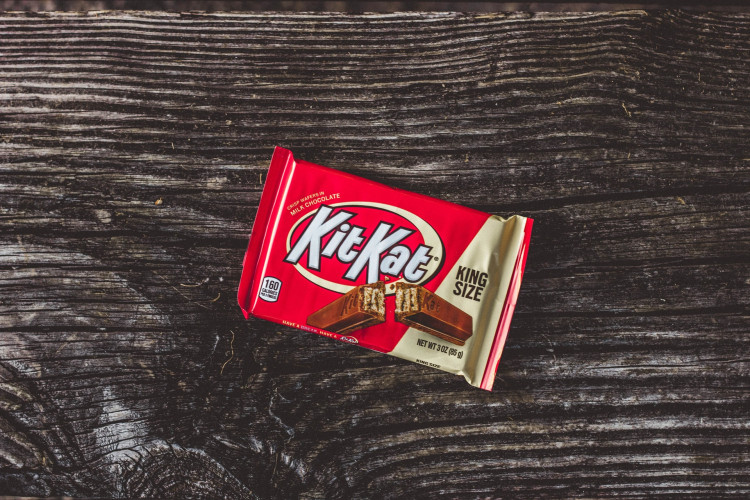Nestlé will release a new iteration of the favorite chocolate bar, reformulating the KitKat so that it is accessible to all eaters by making it completely vegan.
The details first came from Plant-Based News, which reported that the insider group Vegan Food UK had made an Instagram post, announcing that Nestlé had quietly created a new plant-based KitKat bar, specifically labeled "vegan" on the package.
Nestle later confirmed the offering is on its way.
"One of the most common requests we see on social media is for a vegan KitKat, so we're delighted to be able to make that wish come true. I can't wait for people to be able to try this amazingly tasty new KitKat," said Alexander von Maillot, head of Confectionery at Nestlé.
The new vegan KitKat, called KitKat V, will be launched later in the year in several countries across the globe. It will only be available through the KitKat Chocolatory and selected retailers, to test the opportunity for a wider roll-out.
One of the biggest worries for plant-based eaters with chocolate bars can be the milk-chocolate base, so Nestlé will provide a non-dairy version.
Vegan Food UK has only confirmed that the chocolate bar will reach British stores, but with Nestle heading towards plant-based options, it will not be long until the United States sees the product on shelves.
Vegan KitKat will not be Nestlé's first product to be re-engineered for a plant-based audience: the Swiss company launched vegan condensed milk in the UK and can now be found on shelves all over the country in Tesco and Morrisons. Plant-based condensed milk is made from oat and rice flour and provides a perfect substitute for people who love Nestlé's classic Carnation condensed milk.
Confectionaries are one of the last categories from Nestle to follow the plant-based movement. Last year, Nestle Purina created a blended pet food line, adding fava beans and millet insects, and plant protein to the meat protein.
Several other popular candy offerings, including Twizzlers and Sour Patch Kids, are vegan, but the production of vegan chocolate products has proved difficult for some candy producers due to the prevalence of milk in many chocolate products. Dark chocolate makes it easier to comply with vegan standards, but some major brands, including Lindt, are not vegan.
The Dietary Guidelines Advisory Committee advised for the first time in 2015 that a vegan diet or any diet that decreases the number of animal products the consumer eats or drinks has a lower environmental impact.






